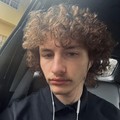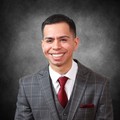There's a certain violence in poverty that numbers alone cannot capture. How an empty refrigerator hums louder than any calculus proof, how a mother's exhausted silence post-midnight-shift weighs more than all textbooks you'll ever carry. My childhood in Hialeah, where only 9% hold Associate's degrees, much less Doctorates (1.1% of Miami-Dade), taught me that deprivation isn't just lacking money; it's lacking models for what's possible.
Crisis came when I realized my college dreams would require more than good grades. While classmates discussed SAT tutors, Princeton-Review Books, college tours their parents arranged, I faced a simpler equation: no generational knowledge + no financial cushion = no room for error. Looking at the proportions, the resources, this confidence interval was bound to failure. I didn't have WallStreet connections or family friends in STEM, just a school-issued laptop blocking every site and determination to make it count. I had to turn it up to 11, deviating beyond what was expected, even reasonable.
First, I became a scholar of scarcity. Losing my home internet after moving, I became a library regular, working through proofs in the borrowed math books. By curiosity, I taught myself programming fundamentals, building knowledge base necessary for final exam, debugging algorithms at home on that faulty laptop. Despite the odds, I managed with a 5, funnily enough
creating a currency converter that revealed how code could model economic systems. My first glimpse into mathematical frameworks that later drew me to quantitative-research. The same was not for APCSA, where combined stress of numerous intensive AP Courses combined with need to adapt to my mother's ever-so-unstable mind & work-life consumed my time beyond repair.
However, time went unwasted as one course proved my next breakthrough, a new jump in a new sector. With AP Research I discovered regression analysis, utilizing ANOVA to prove Hispanic identity I shared, correlating with trend-susceptibility. Beginning as study in creative sociology became my new lens to quantitative reasoning, as abstract math revealed power to decode human behavior. Such was my next 5, the next boundary broken. Currently through AP Statistics, I view the real-world teeth of that math. I grew obsessed with how data revealed hidden patterns in everything, school funding to economic mobility.
My following breakthrough came through Future-Educators-of-America. After weeks of carefully planning out presentation, considering problem from all perspectives as learned in Calculus, When I won Regional Ethical Dilemma Chapter Competition, I hadn't just gained a trophy, I gained the experience of derivation theorem dissecting educational inequity. Another taste of how math could dissect philosophical endeavors.
At Swamp Shifters, optimizing gear-ratios and weight distributions, mirroring stat-models, combined with iterative problem-solving of multi-interactions, just as witnessed in my Research Paper’s correlational matrices.
Now in every moment, I saw the structures, music rushing to rationalize the previously categorized as nonsensical. Suddenly, it all made sense.
What poverty steals, it replaces with resourcefulness. I learned barriers are unsolved equations, and first-generation students like myself are natural optimizers, forced to find angles where others see dead-ends. Now, as mathematician, I hope to reform how quantitative tools serve marginalized communities. My goal isn’t just to master models, but to ensure they’re weapons against living inequities.
And so I’d embrace Inspire11’s mentorship. Whilst constructing strong analytical foundations, I require guidance to bridge theory and practice, as regression analysis scales to market predictions. One day, I’ll teach underprivileged students that math isn’t some distant abstraction, but a toolkit for rewriting their own equations.
Talent is universal, but opportunity is a problem of distribution. I’ve spent years solving for X in my own life. Now, I’m ready to expand that solution set.
Resilience has always been more than a buzzword for me — it’s been a way of life.
Growing up, my single mother worked tirelessly to support us, but despite her efforts, we faced periods of housing insecurity. For a time in middle school, we lived out of our car. I remember doing homework with a flashlight, eating fast food dollar meals because they were the cheapest option, and still showing up to school every day determined not to let anyone see me fall behind. Those early experiences taught me how to adapt, how to work under pressure, and how to find strength in the face of instability.
Up until that point, I had been attending a private school with some financial aid assistance, but once our situation changed, I had to transfer into a public school going into middle school. I went from a small, familiar environment to a much larger, unfamiliar one, with new students, new teachers, and no sense of belonging. I was trying to keep up academically while hiding what I was going through personally.
It was a shock to my identity. I felt out of place, behind, and overwhelmed. But watching my mom wake up every morning, work long hours, and still find time to check in on me and encourage me — even when she had every reason to be exhausted — taught me turning it up to 11 really looks like. She never completed her degree program, but she gave me something just as valuable: the example of what it means to work hard, stay hopeful, and keep moving forward no matter what.
Her example continues to drive me today. Now, as an undergraduate student working two jobs to help support my mother and I while pursuing a Bachelor's degree in Computer Science, I carry that same determination with me. I see higher education not just as a personal goal, but as a way to break generational cycles and create opportunities that my mother never had. Balancing school, work, and family responsibilities isn’t easy, but I’ve learned how to manage my time, stay focused, and keep going even when things feel overwhelming.
Turning it up to 11, for me, means showing up every single day — whether I’m tired, stressed, or uncertain — and giving my all anyway. It means believing in a future that’s bigger than my circumstances and taking steps toward it, one challenge at a time.
Through these experiences, I have learned the power of leadership through empathy, structure, and persistence. I have learned how to turn chaos into clarity, and how my ability to adapt under pressure — shaped by my early life — could be wielded into a strength, not a setback.
That’s why I would absolutely participate in a mentorship program with Inspire11. Having guidance from professionals who understand how to turn adversity into innovation and leadership would help me continue building the life my mother dreamed of for me. A mentorship would provide the support and insight I need to grow not just academically and professionally, but personally. It would allow me to continue turning it up to 11 — not just to succeed, but to inspire others who’ve been through the same.
The furthest back that my memory travels into my childhood was when I became consciously aware as a toddler. I recall gaining this consciousness in a motel with only my mother, my two-month-old brother, and my seventeen- year-old sister. As a toddler, I could only put together what I understood; which was that my father wasn't present, and we were no longer sleeping in a house at night.
My mother and father had split after only two years of being married due to the verbal abusive that my father put her through, to the point where she contemplated suicide. She fled with my siblings and I after meticulously waiting for the moment my father left the house. We ended up 8 hours away in the small town we currently reside in, where we made our temporary residence in a $30 a night motel. From there, my mother worked relentlessly, along with the help of my grandfather who resided in this town, to retain an apartment in low-income housing.
Fifteen years later, we reside in a house that my mother owns. My brother and I are A-honor roll, Honor Society high school students who appreciate our mother's efforts every single day. My mother raised us with our heads held high despite our financial situation, and continuously reminded us that we were destined for greatness despite what our father believed.
My mother has been present for my educational growth from the moment she enrolled me in preschool as a two-year-old. From there, she pushed me to attend the most difficult classes and maintain A's in every single one of them. I wouldn't have been able to succeed if it wasn't for the strength that my mother had for the both of us. I'll never understand how a woman could endure being homeless and own a home less than 10 years later with two high-achieving students to speak for. My mother can "turn it up 11" for us, so I am doing the same for her.
My main motivation in life has been to avenge my mother and the struggles she has had to grapple with for the past 17 years of my life. She has had to raise my brother and I single-handedly with a current annual income of around $27,000. The amount of unmet financial needs in our household has crushed my mother, and I intend to repay her with a promising education and a future life where I can provide for her and I. With this in the back of mind, there will be no time for distraction and I will attend college with a strong and dedicated mindset to accomplish my goal.
I have always done everything I could to promise this future for us, such as maintaining an almost perfect academic record and a college-4-point GPA of 3.9166. I apply for a different scholarship whenever I can and I've applied to 5 colleges, in which three I've been accepted to. I cannot waste any time, and I barely have time because of my job and schoolwork I have to maintain at the same time. I take only Dual Credit and Advanced Placement classes for my senior year of high school, while working over 20 hours a week to save money for college. I promised myself that all of my hard work would not be in vain, and I hope that the administrator of this scholarship helps to ensure this. I intend to show my mother how much I love her, and show my father that he was never needed.
“That sounds like a great idea!” Miriam, the co-founder and executive director of the Presidents’ Alliance, said. “We’d be happy to host it on our website.” No sweeter words had been sung to my ears. I almost couldn’t resist the urge to jump and scream—an act that would have undoubtedly left me with a torn suit and a dazed audience.
This was a milestone in October to a journey that began in June.
Rejection after rejection after rejection. My college reaches had shown me why they are called reaches. I had no backup plan. Not because I didn’t apply to safeties—I applied to multiple—but because I was an undocumented student. When most schools said “100% financial need meet,” they didn’t mean me. I was not eligible for their scholarships or grants or loans or work-study.
In April, as a low-income student, my chances of going to college weren’t looking good.
After about a week of wallowing in self-pity, I decided to begin my college search and application process again—from scratch—with the small number of schools that were still accepting applications. I searched through the jungle of information, much of which was not publicly available information, for specific policies on undocumented students. After a mentally destabilizing time for me, I secured admissions with a fairly affordable cost of attendance.
Regardless, my experience was not fun. It was unduly burdening, and I was determined to ensure other students like me didn’t go through what I did. I began by mentoring a fellow but junior undocumented student through the application process. While the experience was good, with her having just received a full-ride admission to Washington University in St. Louis, I felt like I could and should reach more students.
Late in June, I realized that the biggest problem for me was information and misinterpretation of admissions/financial aid policy. Having discussed with my friends, this wasn’t a me problem. Thousands of students around the country were most likely struggling with the same problem. I decided that to tackle the problem, I would create a centralized database/information resource for undocumented students.
I got to work immediately, extracting the emails for admissions offices for a few hundred schools to an excel sheet, creating the questions to be asked, designing the webpage where the information would be displayed, and finally reaching out to the schools whose contact information I had. Using mail merge, I sent personalized emails to schools, stored replies in an excel sheet in the same workbook, and created an access query to merge relevant information. I then exported the information to a text file and created a program to extract the information from the text into HTML files for each school.
I then created a presentation and reached out to schedule a meeting with the President's Alliance, and there I was, pitching the plan I had conceptualized and was executing myself. There are many ways to exhibit leadership. Taking the initiative is my way.















